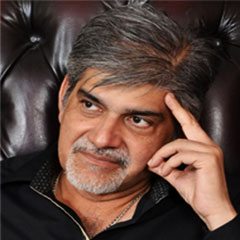
“In many ways, the work of a critic is easy. We risk very little, yet enjoy a position over those who offer up their work and their selves to our judgment. We thrive on negative criticism, which is fun to write and to read. But the bitter truth we critics must face is that in the grand scheme of things, the average piece of junk is probably more meaningful than our criticism designating it so” — Anton Ego (voiced by Peter O’Toole) in movie ‘Ratatouille’ (2007), written by Brad Bird.
The advent of the electronic media has made everyone a critic. Today, we can probably win the Guinness world record for most news television channels in a country if they have such a record. With newsmen under stress to broadcast 24 hours a day, everybody, including the man on the street, gets an opportunity to speak his mind on everything. Regardless of whether everyone is qualified to comment upon topics as diverse as finance and cricket or not, what is amazing is that the majority generally do not have anything positive to say.
I for one do not believe that we, as a society, have stooped to a level where we can only be entertained by sensational news. One really cannot blame the media for projecting even a sunny day as breaking news. After all, it is their job. News is necessary, but if all of it is bad, then the health authorities should insist upon a warning that it is harmful for your health.
Like Mr Ego says, the work of a critic is easy. Today everybody can be a critic given that it is so easy and numerous opportunities exist to criticise without fear of any repercussions. There may be a gladiator who bravely fights it out in the coliseum. The gladiator, however, is outnumbered by a million critics. And much to the poor gladiator’s dismay, criticism has another avenue. The internet, in addition to being easily accessible, is a miraculous tool to collect data or statistics and articulate desktop criticism. Such research and analysis invariably commands authority and clouds the audience’s perceptions.
Pakistan is going through a financial crisis and all of us seemingly have become experts on finance. It is easy to point out that inflation is going out of control, price hike of petroleum products is killing for the masses, government borrowings and the fiscal deficit are rising, and economic growth has stalled. The difficult path, however, is to be aware of all the facts and information and come up with a strategy to enhance tax revenue when we, as a nation, do not want to pay taxes.
We are quick to criticise the finance team for following the dictates of the IMF but look the other way when it is our turn to step up. Our national pride is easily hurt except when we ask for aid. Whatever happened to the slogan “Be Pakistani buy Pakistani”? If we were not importing our luxuries, we may not have to export our wealth.
Financial gurus and advisors of yesteryear are always quick to criticise subsequent performers. Do they forget that the internet is a reservoir of information about their performance as well? Were they following the advice they are offering to their juniors when they managed the economy? Looking at real GDP growth rates for the last 30 years as published by the State Bank of Pakistan. The best two years were both under martial law regimes and on the basis of average GDP growth, dictators apparently fared better than political regimes. So should we give up on democracy or just criticise for the sake of criticism only?
Being a Pakistani I can relate to my countrymen’s passion for idle talk and gossip. We may not have money for food but we are sure not giving up our phone. If we have to talk, we have to talk. But why do we not focus our criticism on others and, for a change, say good things about Pakistan. If we have to find a conspiracy theory why do we not look for one in the West’s action to now conquer the Middle East after Afghanistan and Iraq? If we only have to negatively criticise our country and countrymen, then let us just keep quiet. Positive criticism without vested interest should always be welcome. If the elite have something to say then let it be said politely. After all, did we not want democracy? All this negativism surely is not helping the process. Let us not forget that the shoe can be on the other foot in the future. What goes around comes around. Let us be proud Pakistanis and let us build on national pride. I may be criticising criticism, but it is not for the sake of criticism.
In the words of Theodore Roosevelt, “It is not the critic who counts; not the man who points out how the strong man stumbles, or where the doer of deeds could have done them better. The credit belongs to the man who is actually in the arena, whose face is marred by dust and sweat and blood, who strives valiantly; who errs and comes short again and again; because there is no effort without error and shortcomings; but who does actually strive to do the deed; who knows the great enthusiasm, the great devotion, who spends himself in a worthy cause, who at the best knows in the end the triumph of high achievement and who at the worst, if he fails, at least he fails while daring greatly. So that his place shall never be with those cold and timid souls who know neither victory nor defeat.”
The writer is a chartered accountant based in Islamabad. He can be reached at syed.bakhtiyarkazmi@gmail.com
